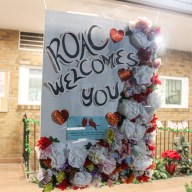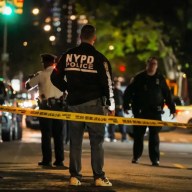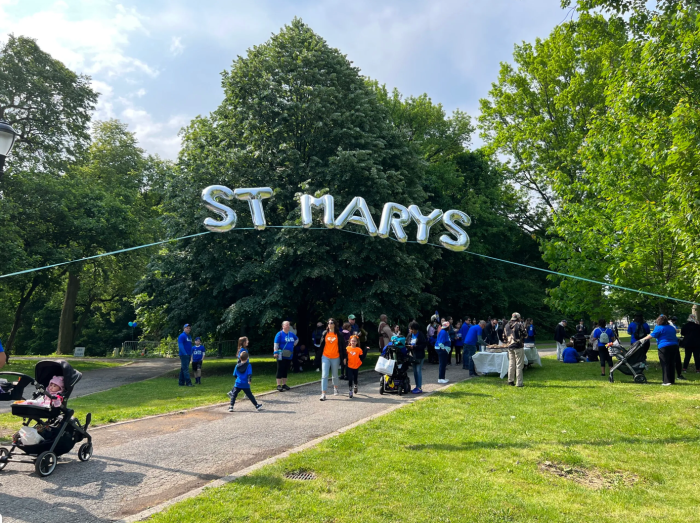By Bob Harris
Avella is the chairman of the Council's Subcommittee for Zoning and Franchises. The BSA is a five-person body appointed by the mayor that decides on variances to the zoning law that allow structures larger than permitted under the zoning for that area.
Homeowners have been complaining for years that the BSA gives too many variances. The result has been to allow the construction of large buildings of all kinds in purely residential neighborhoods of one- or two-family homes. More than 30 people testified at the recent hearing, but only seven spoke against the law. Lawyers and expediters spoke against Avella's bill.
One of the civic leaders who spoke for the bill was Mandingo Tshaka, who complained of variances that permitted gas stations and auto body shops in Bayside. Bill Nobile of the Little Neck Pines Civic Association spoke against the bill, as did Assemblywoman Debra Glick (D-Manhattan) and Community Board 1 in Manhattan.
Michael Gruber of the Queens Historical Society stated that 93 percent of sought variances are approved. The TriBeCa Community Association in Manhattan told of having to fight a developer for years. Community Board 10 members complained that they have to rely on pro bono experts and often take time off from their jobs to testify at hearings.
I spoke for the West Cunningham Park Civic Association in Fresh Meadows and the effort we volunteers have to put into fighting variances for giant community facilities. Shirl Basehore of the Committee to Preserve Fresh Meadows and Jamaica Estates complained of the complexity of the procedure, which is beyond the knowledge of small-home owners.
The Bay Terrace Community Alliance spoke of the frustration at the passage of many variances. Vinegar Hill Neighborhood Association on Brooklyn's East River complained that it is a mixed-use area that is being changed to residential due to variances.
In the West Village the Morton Street Block Association had the same complaint. Elliot Socci of the Douglaston Civic Association complained also of variances and of “as of right” community facilities. Tyler Cassel of the North Flushing Civic Association voiced similar complaints, as did Linda Mandel of Flushing.
The Municipal Art Society of New York issued a six-page paper on the issue. Its analysis of variances complained, as have others, that a hardship should not be a reason for a variance, especially if the buyer created his or her own hardship by spending too much money for the property. The Defenders of the Historic East Side said the appeals process is too costly, and the testimony at the BSA should be sworn testimony to increase confidence.
One complaint was that the BSA is surpassing the Department of City Planning in doing zoning changes. The BSA was set up after the courts had ruled that the Board of Estimate was illegal due to each borough president having one vote. Staten Island is small and does not deserve the same voting power of the larger boroughs. The BSA was supposed to give purchasers a fair way to benefit from their property.
The seven lawyers and expediters testified that the City Council members would not be able to concentrate on their legislative duties if they were busy handling land-use problems. Sheldon Lobel complained that since the City Council votes on the mayor's appointments to the BSA it should not have review power.
One complaint was that this added review would be time consuming and increase the costs of a variance, and some said that a small homeowner wouldn't be able to afford the price. But if a small homeowner has a valid case, the community board and the BSA will not give him or her a hard time.
One of the lawyers said the BSA encourages applicants to withdraw their application if it doesn't seem to have merit, so the 93 percent approval rate is not accurate. Avella kept asking for suggestions to make the process better and complained when he didn't get them quickly enough.
Another person suggested that a land-use hearing should be held prior to a regular hearing. It was felt that more engineers and architects should be on community boards. I know they are invited to the Queens borough president's Zoning Task Force meetings. They might get involved more, but it is the civic leaders who are fighting to preserve the quality of life in their neighborhoods and volunteering their time and effort to preserve them.
Good and bad news of the week
Over the last few years there have been several terror attacks against our nation and city, but it took the World Trade Center tragedy to really alert and mobilize us. We will have to be alert for decades to come and it will cost a lot of money and effort, as well as the lives of our people and those of our allies.
Our whole democratic and economic way of life is under attack. If you see anything suspicious, call 888-NYC-SAFE. For a crime in progress continue to call 911. For a quality-of-life problem call 311 or Community Board 8 at 718-264-7895.






























